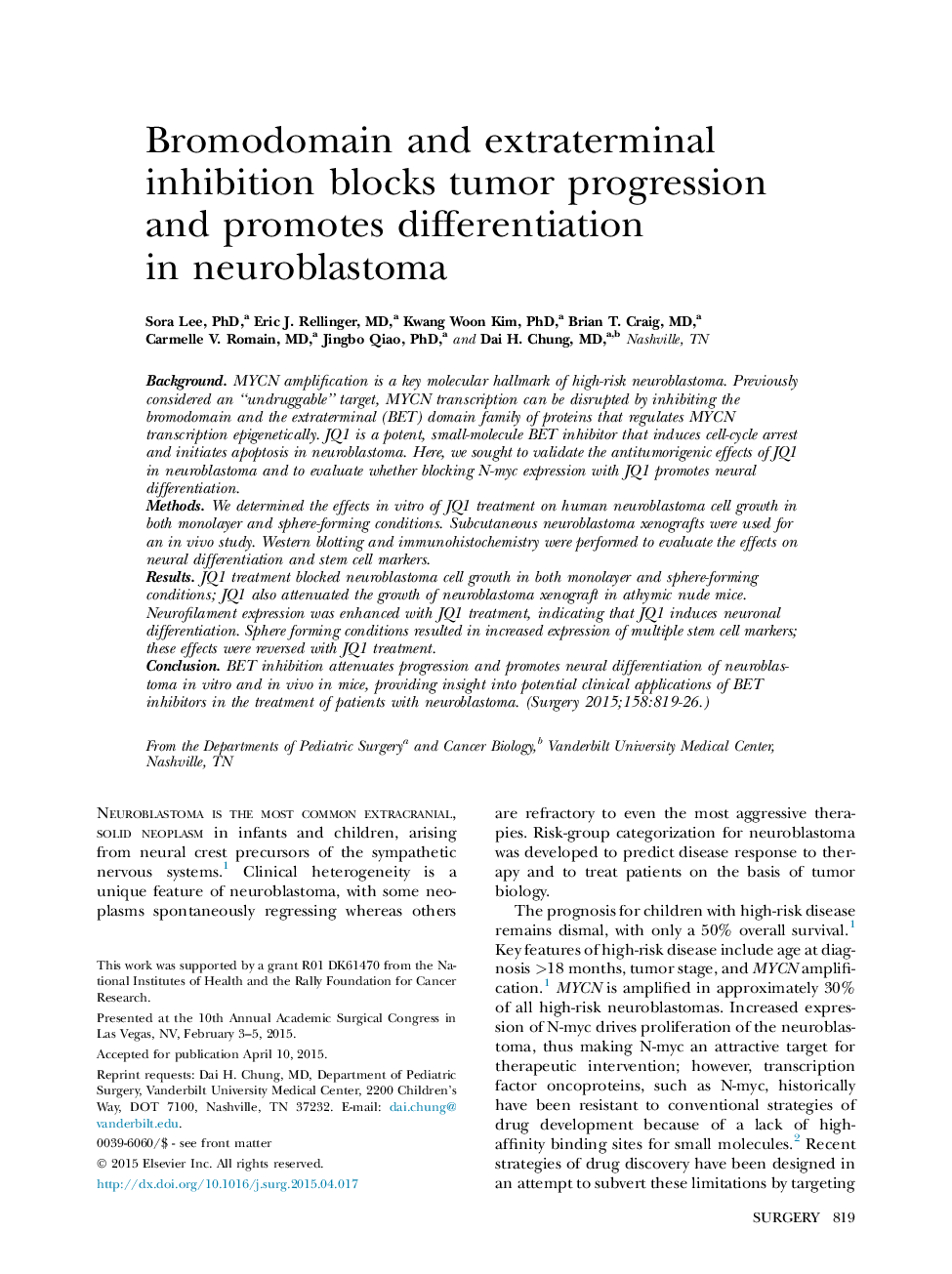| Article ID | Journal | Published Year | Pages | File Type |
|---|---|---|---|---|
| 4306712 | Surgery | 2015 | 8 Pages |
BackgroundMYCN amplification is a key molecular hallmark of high-risk neuroblastoma. Previously considered an “undruggable” target, MYCN transcription can be disrupted by inhibiting the bromodomain and the extraterminal (BET) domain family of proteins that regulates MYCN transcription epigenetically. JQ1 is a potent, small-molecule BET inhibitor that induces cell-cycle arrest and initiates apoptosis in neuroblastoma. Here, we sought to validate the antitumorigenic effects of JQ1 in neuroblastoma and to evaluate whether blocking N-myc expression with JQ1 promotes neural differentiation.MethodsWe determined the effects in vitro of JQ1 treatment on human neuroblastoma cell growth in both monolayer and sphere-forming conditions. Subcutaneous neuroblastoma xenografts were used for an in vivo study. Western blotting and immunohistochemistry were performed to evaluate the effects on neural differentiation and stem cell markers.ResultsJQ1 treatment blocked neuroblastoma cell growth in both monolayer and sphere-forming conditions; JQ1 also attenuated the growth of neuroblastoma xenograft in athymic nude mice. Neurofilament expression was enhanced with JQ1 treatment, indicating that JQ1 induces neuronal differentiation. Sphere forming conditions resulted in increased expression of multiple stem cell markers; these effects were reversed with JQ1 treatment.ConclusionBET inhibition attenuates progression and promotes neural differentiation of neuroblastoma in vitro and in vivo in mice, providing insight into potential clinical applications of BET inhibitors in the treatment of patients with neuroblastoma.
